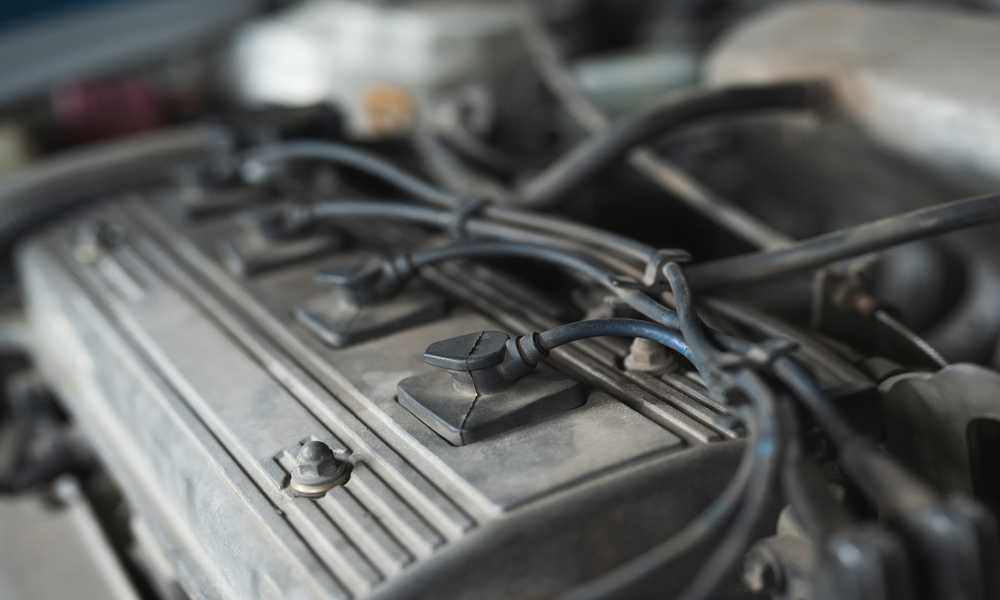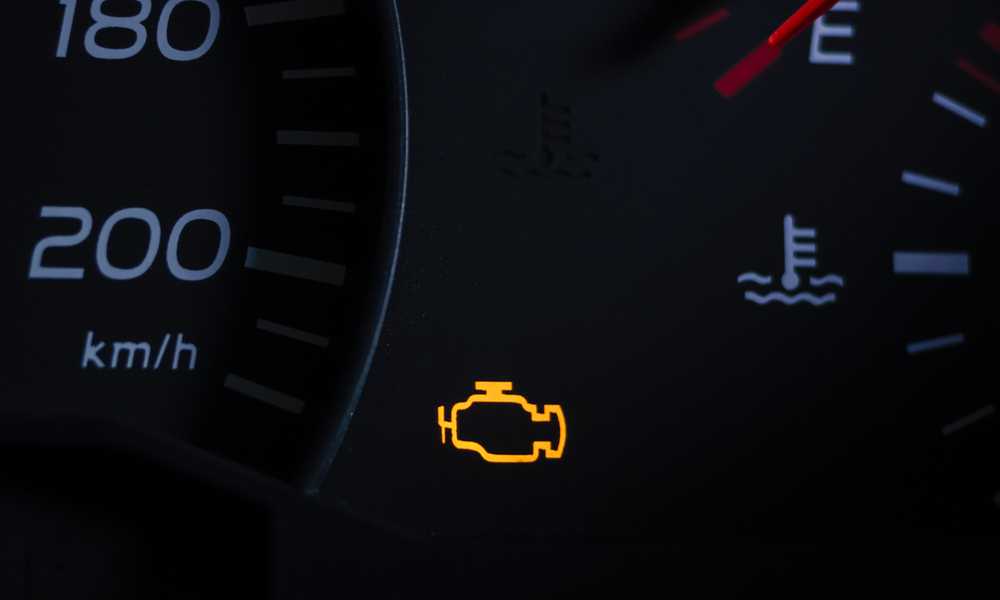Is the Hyundai’s engine warning light making you nervous? Have no fear; you are not alone. Even the most jaded drivers will start to perspire at the sight of that terrifying flashing sign. But have no dread! This article will discuss why the Hyundai check engine light may be on and offer advice on how to resolve the issue. So kick back, relax, and join me as we explore the world of fixing that annoying indicator light!
Common causes for Hyundai check engine light
1. Loose gas cap

The Hyundai check engine light can be triggered by a number of things, but a loose gas cap is a common one. It might not seem like a big deal, but it can cause the check engine light to turn on.
A leaky or improperly sealed gas cap can let flammable fuel vapors escape from your car’s fuel system. This can throw off the engine’s air-fuel ratio, causing a host of problems.
This can be remedied by either tightening or replacing the gas cap. To begin, make sure the cap is on tight, and if necessary, give it a couple more spins. If the cap is cracked or otherwise damaged, it should be replaced.
Assuring a properly sealed gas cap is one of the easiest ways to keep your Hyundai running smoothly and free of check engine light activations. Don’t put off fixing something as simple as a loose gas cap because you think it won’t cause any problems.
2. Failing catalytic converter
A faulty catalytic converter is a common cause of the Hyundai’s check engine light coming on. You may thank this vital part of your car’s exhaust system for its contribution to cleaner exhaust.
The catalytic converter can deteriorate or wear out over time owing to reasons including age, high mileage, or poor fuel quality. This could render it incapable of efficiently transforming potentially dangerous gases into safer ones.
A faulty catalytic converter can cause a variety of issues, any one of which could cause the engine warning light to come on. Some of these symptoms include a decrease in engine performance, a rise in fuel consumption, and even an unusual odor coming from the exhaust.
If you think your catalytic converter is malfunctioning, take it to a mechanic for inspection and possible repair. Ignoring the problem can lead to more serious issues down the road and could even cause your car to fail an emissions test.
Remember that fixing your Hyundai’s catalytic converter as soon as you notice a problem can benefit the environment and increase the vehicle’s efficiency and lifetime.
3. Fouled spark plugs or spark plug wires

A common cause of your Hyundai’s check engine light is dirty spark plugs or spark plug wires. All engines rely on these parts to ignite the air-fuel mixture inside the combustion chamber.
Wear and tear on the spark plugs or the accumulation of carbon deposits might lead to a misfire over time. This may cause the engine to stall during acceleration or have a rough idle. Damaged or malfunctioning spark plug wires can have the same effect, causing weak or intermittent sparks to go to the cylinders.
You may fix this by having your spark plugs and wires checked and replaced if necessary. If you want to keep your Hyundai running smoothly and efficiently, you should clean or replace these parts on a regular basis.
Taking care of dirty spark plugs or wires quickly can prevent the need for more costly repairs down the road. If you experience problems like a sluggish engine or decreased performance, don’t put it off! Now is the time to take action and have a professional inspect the spark plugs. The Hyundai you drive will appreciate it.
4. Faulty oxygen sensor
When your Hyundai’s check engine light comes on, a faulty oxygen sensor is a likely culprit. When it comes to keeping an eye on the air-fuel ratio in your engine, the oxygen sensor is a vital component. Taking a reading of the oxygen content of the spent fuel, it relays that data to the ECU for processing.
When the oxygen sensor breaks down, it can give false readings that hinder your car’s performance. A malfunctioning oxygen sensor can lead to poor gas mileage, harsh idling, and even trouble starting the vehicle.
A malfunctioning oxygen sensor must be replaced for maximum engine performance and emission control. A competent mechanic should check out the problem and repair the malfunctioning sensor if necessary. They’ll utilize diagnostic equipment and instruments specifically designed for oxygen sensors to zero in on the faulty one.
If you drive around with a broken oxygen sensor and don’t have it fixed, you could end up damaging other parts of your car’s emission system and spending more money on repairs. A malfunctioning oxygen sensor will cause the check engine light in your Hyundai vehicle to come on. For the sake of your safety and the environment, you should have this problem fixed as soon as possible.
5. Faulty mass air flow sensor

The Mass Air Flow (MAF) sensor is a vital part of the Hyundai’s ECU. Its primary job is to report air intake levels to the ECU, the electronic brains of the engine. The electronic control unit can then fine-tune the fuel injection and ignition timing accordingly.
The check engine light in your Hyundai may come on because of a malfunctioning MAF sensor. The sensor can give the ECU false readings if it gets dirty or breaks, which can throw off the engine’s fuel-air ratio. This may cause the vehicle to use more gas than necessary, have a rough idle, hesitate when accelerating, or even stall.
A malfunctioning MAF sensor typically necessitates the use of diagnostic tools not readily available. But if you think that this is the case with your Hyundai’s check engine light, there are certain things you can do before taking it in for repairs. First, make sure there are no frayed or disconnected wires in the connectors. Remove any dust or debris from the sensor area and wipe it off with electronic contact cleaner.
If your Hyundai’s check engine light is on because of a defective MAF sensor despite taking these precautions, you should take it in to be serviced by a professional who has knowledge with Hyundai automobiles. They will have access to testing equipment that can determine with high precision whether it simply needs cleaning or must be replaced.
Keep in mind that if you take care of problems right away, you can keep your car running well and avoid any more damage.
How can I fix my Hyundai check engine light?
Troubleshooting your Hyundai might be stressful if you see the dreaded check engine light come on in the instrument cluster. But have no dread! You can take a number of measures to deal with and hopefully resolve the problem.
First of all, try not to freak out. Relax and double-check that your gas cap is on tight. A loose gas cap, of all things, might cause the check engine light to illuminate. If it doesn’t fix it, you’ll have to look into the matter further.
The next thing you should do is inspect the catalytic converter. The check engine light may be activated because of converter failure, which impacts emissions. It’s advisable to have a professional evaluate the situation and replace the part if necessary if you think this could be the cause of the problem.
It’s fairly uncommon for the check engine light to come on because of dirty spark plugs or frayed spark plug wires. When these parts wear down or get dirty, they compromise the engine’s ability to spark and burn fuel.
A defective oxygen sensor is another possible cause of the dashboard light. The oxygen sensor is a key component in maintaining optimal combustion conditions in your Hyundai’s engine. If it breaks, it might decrease gas mileage and increase pollution.
Incorrect readings from the mass air flow (MAF) sensor could be the root of your problems. When deciding how much gasoline to inject into each cylinder, the mass airflow (MAF) sensor provides critical information.
There are a number of things that could be triggering your Hyundai car or SUV’s check engine light, but remember that unless you are a trained mechanic with access to Hyundai-specific diagnostic equipment, you should probably take it in for service.
To keep your car running smoothly and to reduce the likelihood of warning lights like this one, frequent maintenance is essential.
Why is my Hyundai check engine light on?
The check engine light is one of the most annoying features of modern automobiles. And when it does, you might be baffled as to why and what you can do about it with your Hyundai.
The Hyundai check engine light could come on for a number of reasons. An easy fix: just tighten the gas cap, because a vacuum leak can set off the light if it’s too slack. A faulty catalytic converter, which normally helps lower emissions, is another possible cause.
Faulty spark plugs or spark plug wires are another prevalent cause. The engine’s performance may suffer and the “check engine” warning light will activate if any of these parts are broken. A defective oxygen sensor or mass air flow sensor can have the same effect.
If your Hyundai’s check engine light is illuminated, having it diagnosed by a pro is essential. They will utilize diagnostic tools to scan the vehicle’s computer system for error codes in order to identify the source of the problem.
While it’s best to repair any problems with your car as soon as possible, it’s not always risky to continue driving even if the check engine light is on. While ignoring a warning sign may save you some money in the short term, it could end up costing you more in the long run.
The cost to repair a Hyundai check engine light issue varies depending on the nature of the problem. The final price tag will be established after we determine exactly which parts and how much more work will be needed.
To sum up (without using those exact words), if you see the check engine light on in your Hyundai, don’t freak out but also don’t ignore it. Take your car to a certified repair shop, where they will have the resources to find and fix the real cause of that annoying light.
Is it oK to drive with check engine light on?
Is it safe to drive with the “check engine” warning illuminated? This is a question frequently posed by Hyundai drivers upon seeing the dreaded warning indicator come on. However, there is no simple solution to this problem. It’s easy to blow off the check engine light and keep on driving, but doing so can cause far bigger problems down the road.
The check engine light indicates that there may be an issue with the emissions system or another critical component of the vehicle, making it unsafe to drive. If you disregard this indication, you may experience decreased fuel efficiency, poor performance, and even engine damage.
You may also fail an emissions test if one is required in your area if the check engine light is on while driving. Different jurisdictions have different penalties for this.
Even if the cause of the check engine light coming on can be something little and simple to fix, it’s vital to keep in mind that the light could be signaling something much more serious that needs to be looked at by a professional right away.
You shouldn’t take any chances with your Hyundai’s health. In the event that your vehicle’s check engine light comes on, it’s imperative that you get it checked out as soon as possible by a qualified mechanic. To be safe than sorry, of course!
How much does it cost to fix Hyundai check engine light?

The price of fixing your Hyundai’s check engine light will depend on a number of things. Despite its name, the check engine light is not a diagnostic tool and can only alert the driver to the possibility of a problem. Therefore, it may take some time and energy to identify the root reason.
Repairing a Hyundai with a lit check engine light can cost anything from $100 for something as simple as a loose gas cap to $1,000 or more for something as complex as a defective catalytic converter or oxygen sensor. Whether something is fixed or replaced is a determining factor.
It’s important to remember that labor expenditures might have a considerable impact on the total price tag. You may pay more per hour at a dealership or specialized mechanic than you would at a regular auto shop.
Get in touch with a reliable mechanic to have your Hyundai’s check engine light diagnosed and to receive an exact quote for the cost of the necessary repairs (including labor and parts).
In summary (not final), the price of fixing a Hyundai’s check engine light depends on a number of variables, including the exact nature of the problem and the repair shop you take it to.
Final thoughts
Dealing with a check engine light can be frustrating, especially when it comes to your Hyundai. However, it’s important not to panic and understand that there are common causes for this warning indicator.
From a loose gas cap to faulty sensors or spark plugs, the reasons behind your Hyundai’s check engine light can vary. It’s crucial to address the issue promptly to prevent any potential damage to your vehicle.
When faced with a check engine light, don’t ignore it or assume everything is fine. Take action by checking for simple fixes like tightening the gas cap or replacing fouled spark plugs before seeking professional help.
Driving with the check engine light on may not immediately cause harm, but ignoring the problem could lead to more significant issues down the line. Plus, having an illuminated dashboard warning can affect your vehicle’s performance and fuel efficiency.
As for the cost of fixing a Hyundai check engine light, it ultimately depends on the specific issue and where you take your car for repairs. Simple fixes might only require minor adjustments or part replacements, while more complex problems could involve extensive diagnostics and repairs.
In conclusion—sorry!—addressing your Hyundai’s check engine light as soon as possible is essential for maintaining its overall health and performance. Regular maintenance checks and timely repairs will keep both you and your vehicle happy in the long run!
Remember: if you’re unsure about how to handle any car-related issues, don’t hesitate to consult a qualified mechanic who specializes in Hyundais. They will have expert knowledge regarding these vehicles’ common problems and solutions.
Keep driving safely—and may your journeys always be free of pesky dashboard warnings!



